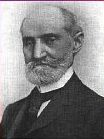Drosera Rotundifolia has Whooping-cough with violent paroxysms which follow each other rapidly, is scarcely able to get breath (wakes at 6-7 a. m. and does not cease coughing until a large quantity of tenacious mucus is raised, Cocculus indicus c. – profuse epistaxis during every paroxysm, [Ind.]; “minute gun” during the day, whooping at night, Cor. r. ).
Deep sounding, hoarse barking cough (Verb.), < after midnight, during or after measles; spasmodic, with gagging, retching and vomiting ( Bryonia, Kali carb. ).
Drosera Rotundifolia has Constant, titillating cough in children, begins as soon as head touches pillow at night ( Belladonna, Hyos, Rumex ).
Nocturnal cough of young persons in phthisis; bloody or purulent sputa.
Cough: < by warmth, drinking, singing, laughing, weeping, lying down, after midnight.
During cough; vomiting of water, mucus, and often bleeding at the nose and mouth ( Cuprum ).
Drosera Rotundifolia has Sensation of feather in larynx, exciting cough.
Diseases prevailing during epidemic pertussis.
Drosera Rotundifolia has Clergyman’s sore throat; with rough, scraping, dry sensation deep in the fauces; voice hoarse, deep, toneless, cracked, requires exertion to speak ( Arum. ).
Constriction and crawling in larynx; hoarseness, and yellow or green sputa.
Laryngeal phthisis following whooping-cough (bronchial catarrh following, Cocculus indicus c.).
Relations. – Complementary: to, Nux vomica.
Follows well: after, Sambucus, Sulphur, Verbascum
Is followed: by, Calcarea, Pulsatilla, Sulphur
Compare: Cina, Coral, Cuprum, Ipecac., Sambucus in spasmodic coughs. Often relieves the constant, distressing night-cough in tuberculosis.
Hahnemann says (Mat. Medorrhinum Pura.): “One single dose of the 30th potency is sufficient to cure entirely epidemic whooping cough. The cure takes place surely between seven and eight days. Never give a second dose immediately after the first; it would not only prevent the good effect of the former, but would be injurious.”

